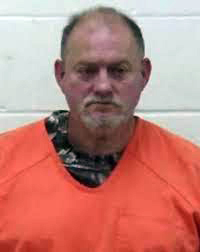
PARTLOW, Va. (BP)–Traffic roars along the interstate off to the east, but only an occasional car stirs the dust on the rural byway against which Wallers Baptist Church has nestled for 227 years.
Today, however, the old church deep in the rolling Virginia countryside stretches toward the future.
Flame passes from candle to candle, illuminating faces bright with promise. It’s a fleeting moment in a setting steeped in heritage. The faces are so young, the building so old.
Wallers Baptist Church is the oldest Baptist congregation in continuous service in the state. The 23 young men and women passing the flame are recent college graduates, journeymen missionaries commissioned Feb. 16 by the Southern Baptist Foreign Mission Board for two years’ service on mission fields overseas.
From here they will scatter — 10 nations across six continents — to serve as teachers and literacy workers, computer experts and language students, planting churches and nurturing new believers, each with the purpose of helping career missionaries carry out the Great Commission, that the good news of Jesus Christ might be heard across the globe.
It’s fitting their service begins here. It was here John Waller began his ministry.
Waller was born on the nearby Wallers plantation, where Kunte Kinte — the ancestor Alex Haley popularized in his book, “Roots” — came in chains and now lies buried in the old slave graveyard. Waller was known as a young man given to “every species of wickedness and vice,” but while serving on a grand jury that indicted pioneer Baptist missionary Lewis Craig for unlawful preaching, he came under conviction. He saw something in Craig that was lacking in his own life.
“Swearing Jack” became “Preaching John.”
Waller founded Lower Spotsylvania Baptist Church in 1767 and became its first pastor. It was later renamed for him and a nephew he baptized who followed him in the pulpit. By 1791, the congregation under his leadership had planted at least 15 other churches and before his death in 1802 he planted two more in South Carolina.
History records he was treated cruelly, beaten and imprisoned for his preaching, and he in part influenced Thomas Jefferson’s decision to fight for inclusion of religious freedom in the founding documents of our nation.
Preaching John laid a foundation for all who would follow him.
The FMB’s John Murphy, a staff member at the Missionary Learning Center in Rockville, Va., noted in his charge to the new missionaries the early church was comprised of a small group of ordinary people — much like the group gathered in the old church that Sunday — yet they lived extraordinary lives and laid the foundation for all who would follow them.
–30–















